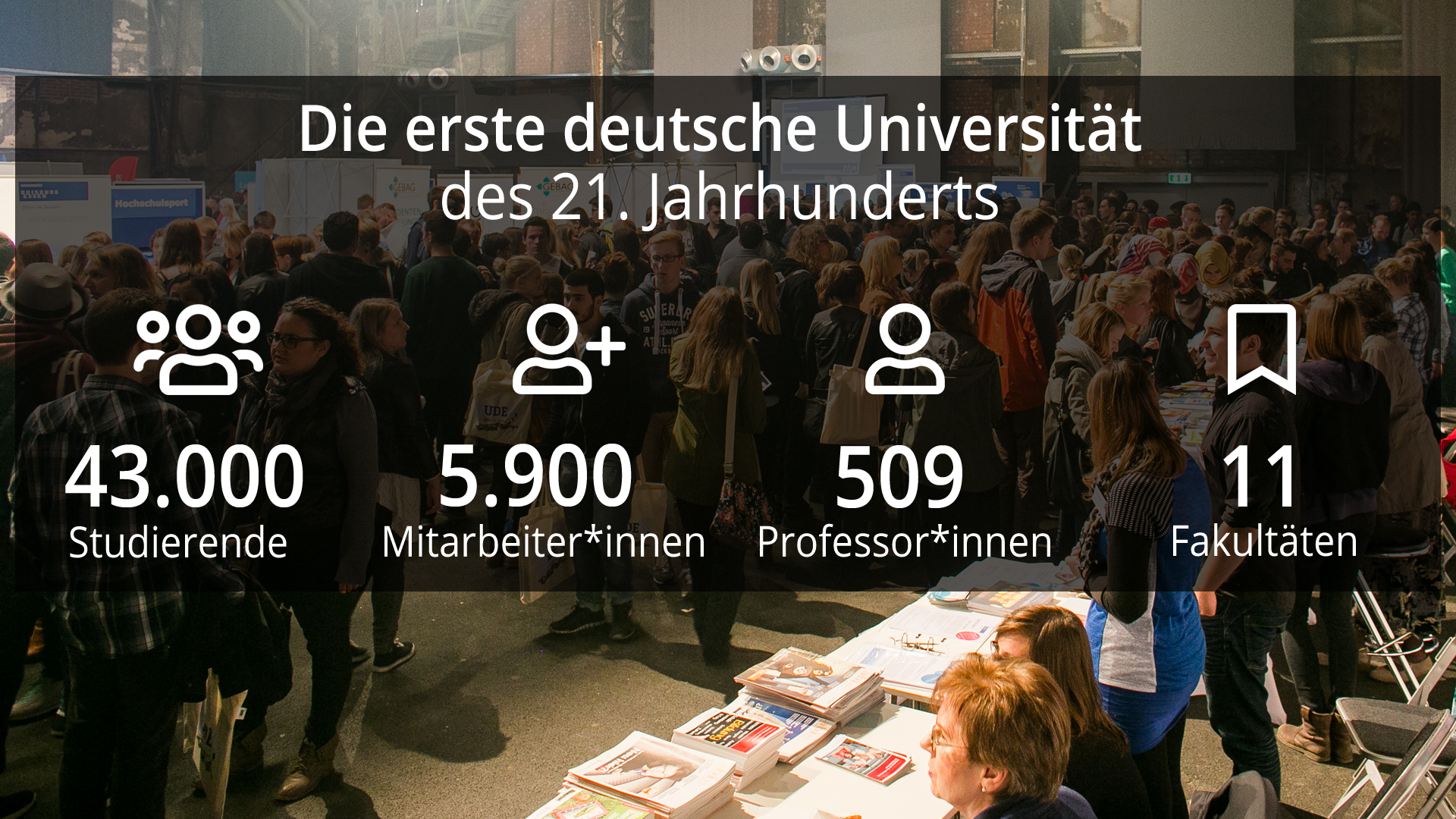
The classic outcomes of universities are their students and graduates, academic publications and academic reputation, as well as successful academic career stages (doctoral candidates, postdocs, habilitation candidates, junior professors).
At our university, we see transfer as our social responsibility to actively shape the transfer of scientific findings into our environment and to remain in an active exchange with society. We not only make the outcome available to society, but also work together to find ways of making it usable for as many people and systems as possible.
Our transfer activities fall into three categories that require different degrees of governance, structuring and support:
- Direct transfer: UDE output reaches the academic world, working life and environment directly from researchers and teaching staff, from the faculties and central academic institutions, via established channels (e.g. publication in a specialist journal);
- Professionally supported transfer: transfer to and exchange with the scientific and business world, society and politics is specifically supported by dedicated internal university units;
- Partnership-based transfer: the implementation of innovations and use of scientific findings in application and general knowledge takes place with strategic partner institutions (e.g. affiliated institutes, university hospitals, cities).

